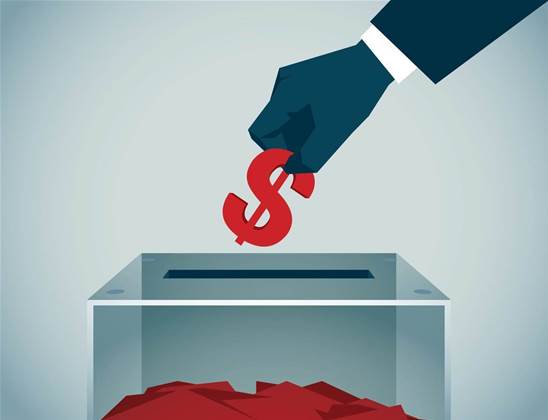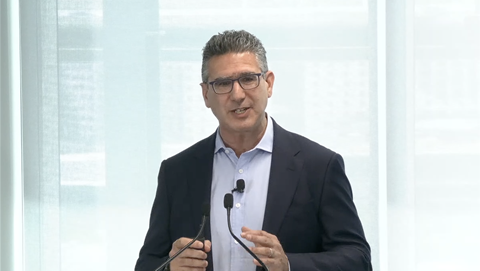The spectre of state-sponsored cyber interference in democratic elections across the world has been a staple example of why nations like Australia need top-notch digital defences.

Especially since the Internet Research Agency’s free-for-all in the 2016 US poll coincided with the delivery of an unexpected Trump Tweetocracy, with the degree of Russia’s influence hotly contested ever since.
Now, after a considerable amount of research helped along by the Australian Computer Society, the cyber security boffins at the Australian Strategic Policy Institute reckon they have reasonable solution to boost the defences of our political parties big and small:
Give them more taxpayer’s money.
In a sustained think piece dubbed “Hacking Democracies” by ASPI’s International Cyber Policy Centre, the Five Eyes-oriented thinktank reckons elected representatives urgently need more cash to protect themselves from the malicious intents of Moscow and Beijing.
“Democratic governments should consider public funding to better protect all major political parties and to step up cybersecurity support to politicians,” ASPI recommends in its paper, noting that “political parties and politicians are clear targets of foreign adversaries.”
Politicians, although some Australians might quibble, are an impecunious mob that do it rather tough on the resourcing front.
“With their shoestring budgets and the requirement to scale up dramatically during election campaigns, they’re no match for the resources of sophisticated state actors. Politicians are also vulnerable, including through the use of their personal devices,” ASPI observes.
It’s a refreshingly brave and empathetic take on the plight of our politicians, especially the ones who clearly struggle daily to determine which pejorative and intemperate social media posts are from legitimate domestic trolls or are really FSB stooges posing as incoherent nutters.
Twitter and Facebook are cruel mistresses, even more so when nation states are having a crack at your inbox, address book and database of followers.
“There’s a strong public interest in preventing foreign states from being able to exploit breaches of both parties and individual politicians to undermine domestic political processes,” ASPI argues, citing the timely pre-election cyber rumble of federal politicians.
“Democratic governments should consider public funding to better protect all major political parties and to step up cybersecurity support to politicians.”
But the paper is perhaps most notable for where it doesn’t go.
With mass data breaches of commercial and government systems now at an all-time-high, there’s no recommendation about reining-in or tightening the degree of access to the Australian Electoral Roll political parties now have, let alone forcing them to fall under the privacy act.
Similarly absent is any recommendation for an independent stocktake of what data electors, ranging from big and small parties to independents, hold on voters or how safe or unsafe it is.
How would voters know, for example, whether or not a party’s campaigning system, that has access to the electoral roll, has been breached or compromised when there is no obligation to fess-up?
And given that credit agencies, health providers, insurers and most government agencies are required to divulge what data is collected on citizens should that citizen request it, it’s a fair question as to why political parties or even candidates get a pretty huge exemption.
Where else do political parties glean information on electors from in an effort to influence them?
ASPI necessarily limited the remit of its extensive and useful catalogue of electoral cyber miscreancy, after all, democracy means many things to many people, and even single party states have elections.
This said, one of the more intriguing questions not raised by the ASPI sweep of electoral cyber-chicanery meted out by foreign actors is how attacks or operations might work, or indeed might not work, in an electoral system where voting is compulsory, like Australia’s.
Many current and former politicians believe the present funding model of Australia’s political system, where there persistent pressure to raise donations for campaigns leads to pernicious influence peddling.
Property development, the resources industry, unions, financial services and the gambling and alcohol interests all stump up donations and routinely recruit former politicians.
A common call is for campaigning activities to be publicly funded with external or third-party donations to be capped or banned altogether.
If this occurred, there would be no barrier to ASPI’s suggestion to fund politicians’ electoral cyber security.
There’s only one catch: you just need politicians to change laws that directly affect and govern them.
And when it comes to participatory democracy, there’s no interest like self-interest.


_(33).jpg&h=140&w=231&c=1&s=0)
_(23).jpg&h=140&w=231&c=1&s=0)







 iTnews Executive Retreat - Security Leaders Edition
iTnews Executive Retreat - Security Leaders Edition
 iTnews Cloud Covered Breakfast Summit
iTnews Cloud Covered Breakfast Summit
 The 2026 iAwards
The 2026 iAwards












_(1).jpg&h=140&w=231&c=1&s=0)



